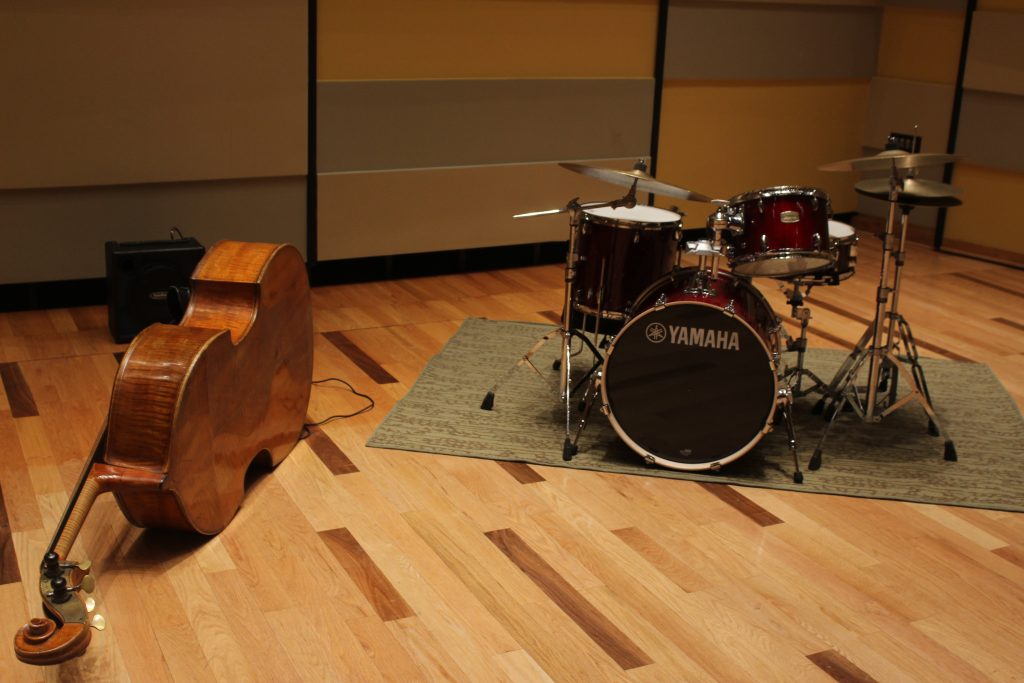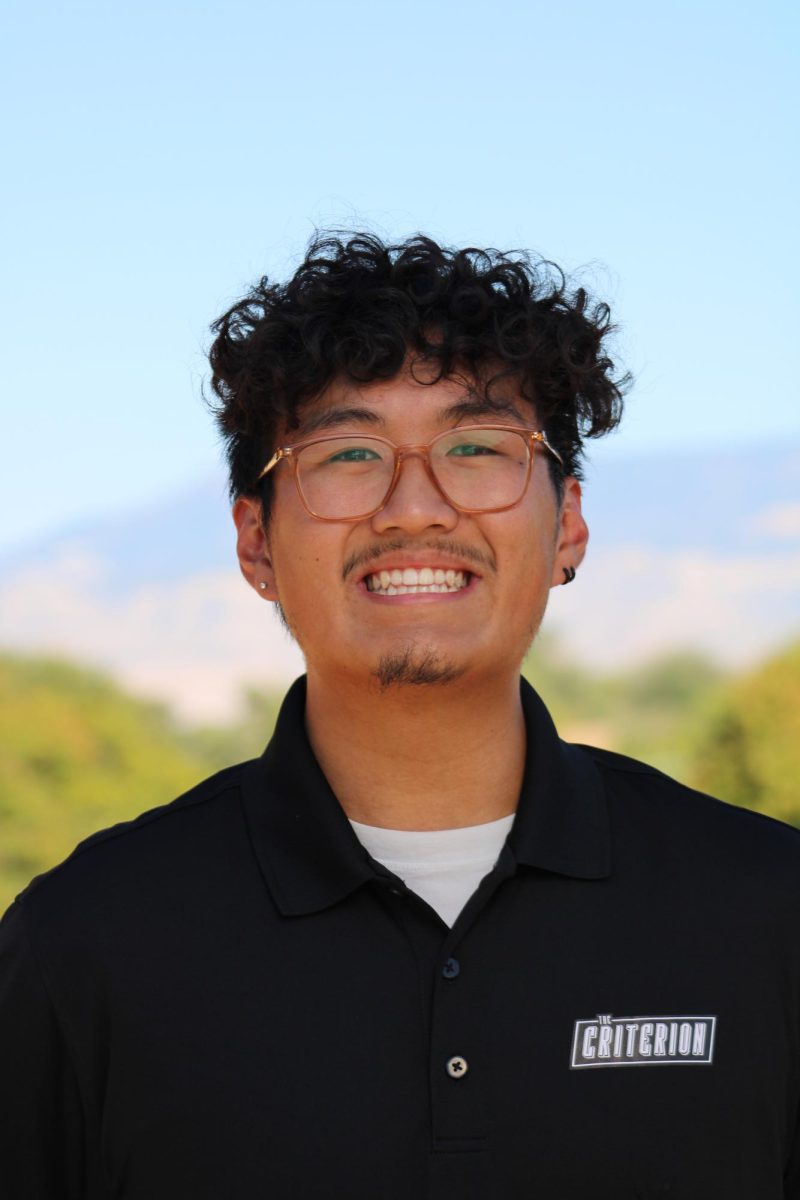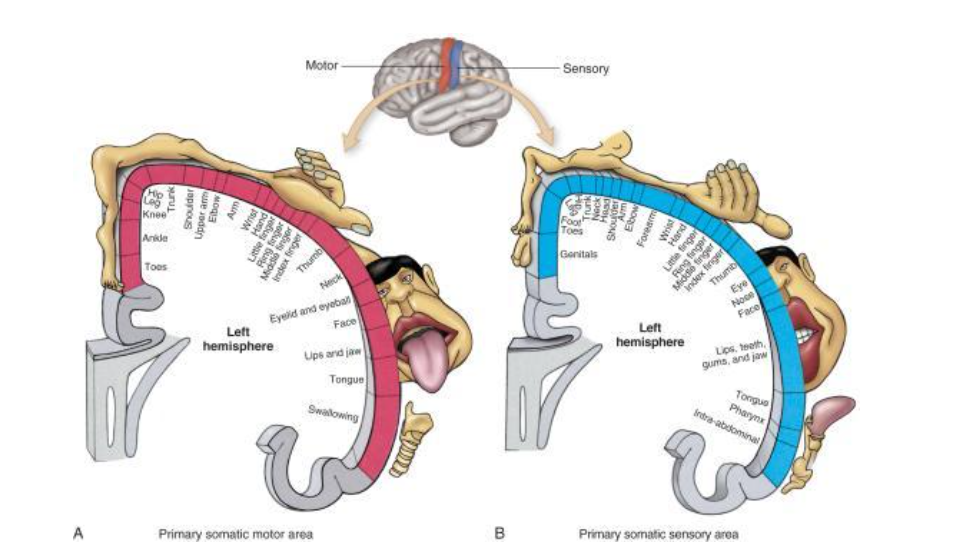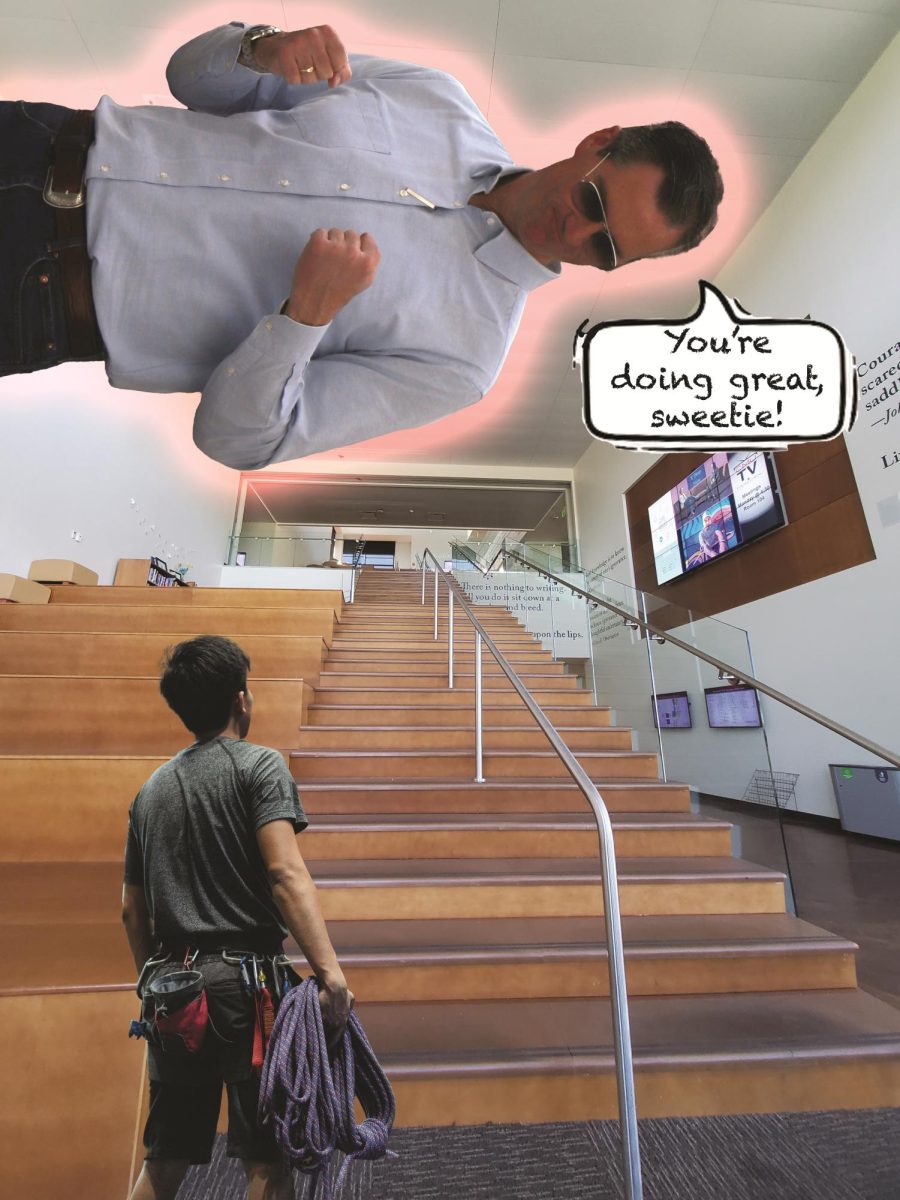“Without further ado, we hope you enjoy this evening’s performance,” Head of the Department of Music Darin Kamstra said.
He seemed to say those words and then the gala was over and I sat there wondering, “that’s it?” Then I checked the time and realized 90 minutes had passed in a flash. It was never a drag; on the contrary, the faculty breezily ran through the program, sometimes pausing to make a joke or set up another music stand.
The gala started with faculty Kristen Yeon-Ji Yun on cello and Arthur Houle on piano, playing “Sonata for Violin & Piano.” I thought it was funny that the program sheet said, “the piano part requires the kind of mutant-like large hands that Dr. Houle blessedly possesses,” until the piece actually started, and I realized it was absolutely right. The piano part was packed to the brim with notes, a frenzy of them all filling the concert hall.

Not to be outdone, Yeon-Ji Yun came into the duet a few seconds in, her vibrato-stricken notes hanging in the air. Halfway through the piece there was a pause; the kind of pause that the audience uncomfortably wonders whether it’s time to clap or not. For an opener, it was fast and dramatic.
Each part of the program seemed designed to take the audience on a rollercoaster. Following the frenetic opener there was a slower piece titled “Sonata for Solo Violin (Obsession),” played by Brian Krinke. Obsession was an apt name for the piece. The entire song felt like someone pacing a room back and forth, talking, and sometimes shouting, to himself. As Krinke sawed across the strings, he had his eyes closed.

We moved to a jazzy melody, called “Mellow-dius Meanderings,” played on the piano by Houle. The whole thing felt like lounging in a pool listening to a jazz orchestra play; it was just relaxing.
My favorite piece of the night was called “Largo al Factotum,” played by Steven Groth on baritone and Adam Kluck on piano. Baritone in this case was voice, and Groth had a booming one. The entire piece was extremely fast, and at one-point, Groth finished belting out his verse, took a huge breath, and wiped his brow, saying “phew.” This piece probably got the loudest cheers of the night.
“Are we all familiar with the three B’s? Bach, Beatles, and Beethoven?” Houle asked to the audience. “We’re doing two out of three.” What followed was called “Bachatonic/Rockatoni Invention No. 3,” a piano duo by Houle and Krinke. It was a mashup of “Bach’s Invention No.14 in B-flat Major” with “When I’m 64,” by the Beatles.
When the door on the side of the stage opens, whoever walks through the door is obscured, and the audience usually starts clapping. We got faked out twice by someone setting up stands. The first time was just a simple mistake, but the second time he came out to set up music stands, he got the biggest cheers of the whole night.
Faculty William Aikens, Susan Hess and Brian Krinke played a trio together, with Aikens on oboe, Hess on bassoon and Krinke on piano. The whole piece sounded exactly like a Disney melody actually. I never knew the bassoon could make such awesomely low sounds, there was something so satisfying about hearing the notes drop to the floor.

My favorite parts of the second half were “Song of Hope” and “Clear Lies.” “Song of Hope” is dedicated to the principal trumpet player of the Dallas Symphony Orchestra, named Ryan Anthony, and his fight against cancer, which he won a few years back, and is now in complete remission.
“Clear Lies” is a trance music piece, made by Dr. Kamstra, played over speakers onstage. The whole thing made me feel like I was underwater. The right word might be submerged. There was a muted beat, and eerie high-pitched sounds reminiscent of whale calls.
The Gala was a blast and had a huge variety of music and professors performing. I probably would’ve been down for a metal song, but I suppose we can’t have everything we want.








